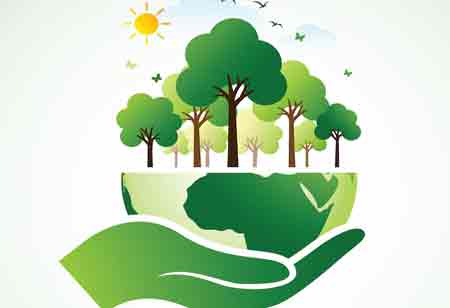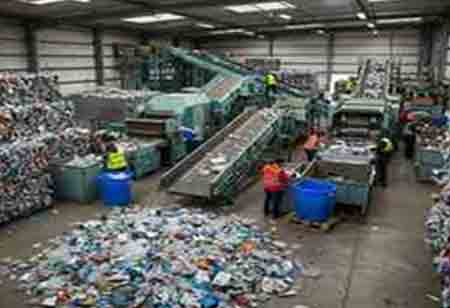Thank you for Subscribing to Environmental Business Review Weekly Brief
Driving Environmental Sustainability Through Technological Innovation
The techniques of energy efficiency technologies are minimizing waste and optimizing consumption.

By
Environmental Business Review | Friday, August 29, 2025
Stay ahead of the industry with exclusive feature stories on the top companies, expert insights and the latest news delivered straight to your inbox. Subscribe today.
Fremont, CA:Technological advancements are essential in confronting today’s critical environmental challenges. From combating climate change to preserving biodiversity, innovations across multiple sectors are driving the shift toward sustainable practices and minimizing ecological impact. These technologies promote more efficient resource use and pave the way for cleaner, greener solutions. Renewable energy systems like solar, wind, and hydropower have transformed energy production, decreasing dependence on fossil fuels and significantly reducing greenhouse gas emissions.
Advances in solar panel efficiency, offshore wind farms, and battery storage systems have made renewable energy more accessible and cost-effective. For instance, large-scale battery technologies like lithium-ion and emerging alternatives such as solid-state batteries allow for storing surplus energy, ensuring a steady power supply even during periods of low generation. The shift is crucial for decarbonizing the global energy grid and achieving climate goals. Smart grids, energy-efficient appliances, and LED lighting systems are reducing energy use across industries, households, and urban centers.
The Internet of Things (IoT) enhances energy management by enabling real-time monitoring and automated adjustments. For example, smart thermostats and building management systems can dynamically regulate energy usage based on occupancy, reducing unnecessary consumption and lowering carbon footprints. Electric vehicles (EVs) rapidly replace traditional internal combustion engines, cutting tailpipe emissions and reducing air pollution in urban areas. Advances in EV battery technology and expanding charging infrastructure are making these vehicles more accessible to consumers worldwide.
Autonomous and shared mobility solutions further contribute to sustainability by reducing traffic congestion and optimizing transportation networks. In agriculture, precision farming technologies are transforming traditional practices into sustainable ones. Tools such as drones, GPS-guided equipment, and IoT sensors enable farmers to monitor soil health, optimize water usage, and apply fertilizers with pinpoint accuracy. Vertical farming and aquaponics, powered by automated systems and artificial intelligence, offer sustainable alternatives for food production, especially in urban settings where land and water resources are limited.
Waste management technologies are making significant strides in tackling the global waste crisis. For instance, chemical recycling processes can break down plastics into their original components, producing new materials with minimal environmental impact. Composting technologies and biogas generation systems turn organic waste into renewable energy and nutrient-rich fertilizers, promoting circular economy principles. Smart irrigation systems, which use IoT sensors and data analytics, are optimizing water use in agriculture, reducing wastage, and conserving this critical resource.
Environmental monitoring and conservation technologies are aiding efforts to preserve ecosystems and biodiversity. Satellite imagery, drones, and AI-powered analytics are helping scientists track deforestation, monitor wildlife populations, and combat illegal activities like poaching and logging. Digital platforms and apps empower individuals to adopt greener habits, from tracking carbon footprints to participating in tree-planting initiatives. Renewable energy systems, green transportation, precision agriculture, advanced waste management, and water conservation technologies drive the shift toward a more sustainable future.





